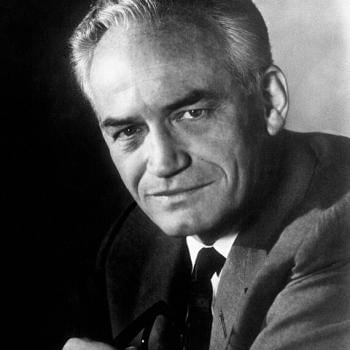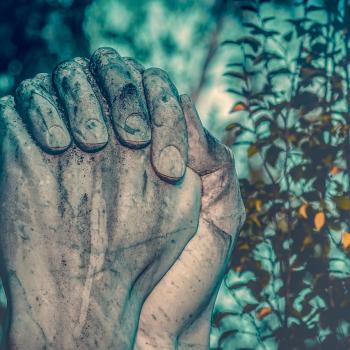When we decided to do a series on zombies in church this month, we had no idea that Harold Camping would become famous for a May 21 end-of-the-world prediction, nor did we expect "Zombie Apocalypse" to trend worldwide on Twitter, nor did we imagine the CDC (Center for Disease Control) would release an article on preparedness in case of a zombie apocalypse. It appears we are not the only people with doomsday on the brain.
For our community of faith, however, the conversation provided an opportunity to distinguish such dire despair regarding the future for a more fitting Eastertide message: hope, resurrection, and new creation. If Easter is the best sign we've gotten about what the future of God looks like, I'm quite certain we can put down the sensationalist fear-mongering placards.
In more specific relation to zombies, these past weeks we described zombies as the anti-resurrection creature. They bring despair, degradation, violence, chaos, fear, and death. In contrast, the story of Easter is one of hope, new creation, peace, and life. We've looked at ways to avoid heading toward what we call the "zombie" side of the spectrum, where those forces of despair and decomposition get the best of us, by practicing and choosing things that will move us instead toward resurrected humanity. In the first week we referenced Zombieland's Rule #1, Cardio. We have to be in good shape to outrun the zombies who are after us. In faith terms, the cardio rule reminds us of the importance of exercising our hope every day. When we practice hope, we find that it becomes natural to us, a bit easier, or at least less foreign.
Then came Rule #22: When in doubt, know your way out. Since zombies can strike anywhere, anytime in a zombie apocalypse, we need to be aware of our surroundings and have an exit strategy in place. Telltale signs we're veering toward Zombieland? We become isolated and disconnected from others, like lone zombies. We become disembodied and out of touch with our own pain. (Ever seen a zombie flinch when losing an arm?) And we become singular in our focus, and possibly choose our focus as something, let's say, less than healthy. (Zombies crave human flesh, but they don't actually need it. They don't even have working stomachs. How's that for a critique on misplaced consumption?!) Rule #22 tells us we need an exit strategy when we see the warning signs. The story of Easter tells us what it is. The potential for new creation, recreation, resurrected creation, means that we don't have to see our current situation as a dead end. We can believe and have real hope that new and better possibilities are made possible by the Spirit of life among us.
Lastly, we discussed Rule #32: Enjoy the little things. This is difficult to do when faced with a growing army of the undead, to be sure. But the Christian practice of gratefulness seeks to bring us into a place where we see the simplicity of life again, where we remember all those little things that make life beautiful. When Jesus says in his Sermon on the Mount, "Do not worry about tomorrow, for tomorrow will bring worries of its own," I think he's asking us to be mindful of all the gifts that are right in front of us, right now, and to trust in the God who has made them and shared them freely with us. Adhering to the rule to enjoy the little things reminds us that hope often looks really big, like trusting in the promises of Easter, but that hope also has a way of becoming real and tangible to us through small things, even seemingly superfluous things like Twinkies. (See Zombieland for further explanation.)
We ended our series by trying to put this rule into action. After handing out Twinkies, we shared with each other some of the little things in life we enjoy. Some mentioned being outdoors and in nature, others mentioned special traditions, others meals or hobbies. I think community member Lindsay Adams summarized the series best when she said, "When you have a family, job, and life in general that pulls you sooooo thin, sometimes you kind of lose sight of who you truly are and you end up in a zombie-type state. I think the message on Sunday about enjoying the little things is what makes us human because we relate to one another . . . sharing a dessert, drink, or just good conversation with another human."
In those shared moments, we see the true power of Easter's ongoing story, for we trust more deeply in new beginnings than doomsday declarations about the end.
6/1/2011 4:00:00 AM





